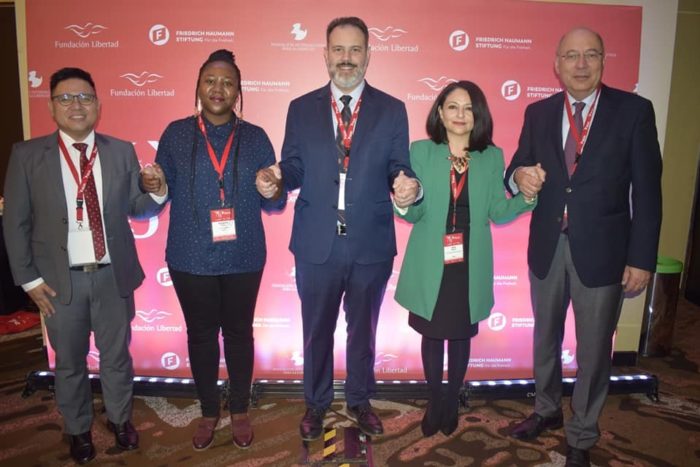
“Without the freedom of thought, expression and assembly, it’s impossible to frame the issue and create a place where people can contribute novel solutions.”
These were the words of Audrey Tang, Taiwan’s Digital Minister and Keynote Speaker in the 15th Anniversary Congress of Red Liberal de America Latina (RELIAL) held in Buenos Aires, Argentina on 3-5 October 2019.
Tang, who is also considered the world’s only transgender cabinet minister, emphasized that innovation can only take place in an environment where people have the liberty to make choices and are free to contribute to the shaping of public policies. Moreover, she noted that the process of innovation should be “inclusive” and should “leave no one behind.” Citing the experience of Taiwan, she said that digitalization ensured that broadband is a human right, and in the process, this contributed to the advancement of the entire Taiwanese society.
Innovation without freedom and equal opportunity can be more “harmful that helpful”, said Tom Palmer, Vice President for International Programs of the Atlas Network. “Most innovations, when embraced by rulers and introduced by force, are catastrophes”, he added.
In many countries of Latin America which are still reeling from authoritarianism, populism and illiberalism, these appear to be the case. Peronism, a movement based on the political ideology and legacy of former Argentine President Juan Domingo Peron and his wife Eva Peron, is a good case in point. The Peronist movement’s goal to ‘innovate’ Argentine society disastrously led to patronage-based politics, corruption, and economic crises – problems which continue to haunt Argentina to this day, as seen in how the upcoming presidential elections are shaping up.
“Latin America and Asia have a number of political, economic and societal similarities, which is why being here has always been a great learning experience”, said Lito Arlegue, who represented the Council of Asian Liberals and Democrats (CALD) in the well-attended regional gathering of CALD’s Latin American counterparts. “The reality is in many Latin American, Asian, and even African societies, institutions are either weak or non-existent. The weakness of institutions make these societies more susceptible to the appeal of populists and strongmen, and in the process, set aside, if not utterly disregard, democratic principles and processes. The lack of democratic principles and processes, in turn, stunt creativity and innovation.” |
Categorised in: News Article
This post was written by CALD
 Unit 409, 4/F La Fuerza Plaza 2, 2241 Don Chino Roces Ave. corner Sabio St., 1231 Makati City, Philippines
Unit 409, 4/F La Fuerza Plaza 2, 2241 Don Chino Roces Ave. corner Sabio St., 1231 Makati City, Philippines
 +632 8819 60 71
+632 8819 60 71
 info@cald.org
info@cald.org